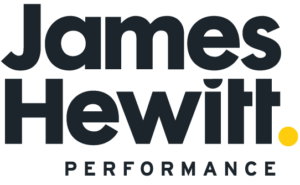Find out why consistency is one of the greatest performance enhancers, in both sport and business, and discover five ways that you can improve your ability to show up and do the work, whether you feel motivated, or not.
I imagine that you’ve noticed the proliferation of articles from people who seem to have transformed their lives during lockdown; relishing more time for relaxation, learning new languages, improving their fitness. I am certainly not in one of these categories. While I’ve enjoyed spending more time at home, trying to juggle starting a new business and occupying two energetic kids through the summer school holiday has been draining at times. Sometimes, I’ve also felt guilty. Surely, I should be taking advantage of the fact that my usually hectic travel schedule has been curtailed to enjoy more time chilling out, ride my bike and improve my French? But somehow, I feel like I’m busier, with more competing demands than ever.
What to do when motivation is low
When my motivation has dropped, and I’ve found myself staring blankly at my screen, or sat on a step, trying to summon the motivation to tighten up my cycling shoes and head out of the door, I’ve reminded myself of one of my early coaches. Often, he’d encourage me to “just do the work”. Five intervals into a 20-interval set on the track, just as I was starting to feel uncomfortable, he would shout it: “just do the work”. 3-days into a 5-day block of 4-6 hours rides during a training camp he calls and instructs me; “just do the work”. The steady accumulation of training load from year to year “just do the work”.
Training consistency and performance
The phrase became a personal mantra that continues to echo in my consciousness, to this day, and it has a sound basis in science. In 2016, a group of researchers in Australia (1) set out to investigate the impact of training consistency, defined as how few sessions an athlete missed, relative to their program, on achieving performance goals. Previous research has demonstrated an inverse relationship between the frequency of injuries and success in team sports. I.e. if players are injured more often, team success in competition is reduced. However, this relationship has not been investigated to the same extent within individual sports.
The study followed a group of Australian track and field athletes over five years. It concluded that training availability – showing up and doing the work – during preparation periods for competition, was the primary determinant of an athlete’s chance of success or failure. This concept, like many others, can be misapplied and taken to extremes. Presenteeism in the workplace may lead to reduced productivity overall. Not taking sufficient rest can lead to non-functional over-reaching (something called overtraining), or injury, among athletes. However, there is no doubt that consistency is king in the realm of performance enhancement.
How to improve your ability to show up and do the work
Unfortunately, being consistent is hard. Whether you are trying to improve consistency in physical training or professional performance at work, here are five techniques I’ve found to be helpful:
- Progress not perfection: Don’t make perfect the enemy of good enough. Remind yourself that doing something is better than nothing. As I’ve written about previously, even a 2-minute workout may be able to maintain or improve fitness. In a work context, rather than committing to work for two hours without being distracted, aim to begin with just 20 minutes.
- Chunk tasks: Break tasks into small, measurable steps. Sometimes we set ambitious goals because we want to. Other times we have giant targets imposed upon us. Whatever the case, it’s inevitable that the initial ‘buzz’ associated with a new challenge will begin to wane. This decline in motivation can lead to procrastination and avoidance. Rather than relying on inspiration, break down your goals into clearly defined ‘chunks’ and take the time to determine precisely what you need to do in each ‘chunk’ of work. You may find this video about enhancing focus and beating distraction, helpful. It’s easier to face a relatively small clearly defined task, which will still contribute to your audacious goal, rather than trying to comprehend the entire challenge, in one sitting.
- Celebrate, don’t berate: The ‘planning fallacy’ means that we often under-estimate the time required to complete a task, so don’t beat yourself up if you struggle to complete every task you set yourself in a given day/session. For example, if you start a workout, but only complete 60% of the sets, focus on the work that you have done, not on the sets you did not finish. In a work context, when you look at your to-do-list at the end of the day, pat yourself on the back for the jobs you ticked off, rather than ruminating about the items you did not.
- Identify obstacles: Implementation intention and mental contrasting strategies encourage a focus on practical actions, reflection on what we are hoping to achieve, but also what may stand in our way. You can read more about these techniques.
- Cultivate patience: Lasting improvement takes time. Often, I’ve characterised knowledge work as an endurance activity which means that we need to consider rhythms of work, rest and peak performance, and develop a plan for cognitive endurance, so we can sustain the effort we need for the long-haul. You can read more about these principles.
Compounding gains for exponential improvement
The principle of compounding is most often applied in financial investing, where the interest earned on an amount is added to the principal (the original investment). This interest then earns interest, and the process repeats, resulting in exponential growth. Initially, this effect is barely noticeable, but the results become increasingly impressive. However, this approach requires patience and persistence. Similar principles are at play in both physical training, and in the workplace. Most ‘overnight success’ stories, in both sport and business, usually turn out to be the result of years of unseen effort, gradually building towards a breakthrough. Patience is often uncomfortable, but it’s important to remind yourself of the long-term benefits regularly, particularly in a world obsessed with hacks and quick wins.
References
1) Raysmith, B.P. & Drew, M.K. (2016) Performance success or failure is influenced by weeks lost to injury and illness in elite Australian track and field athletes: A 5-year prospective study. Journal of Science and Medicine in Sport.





